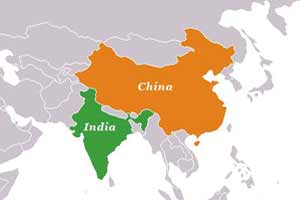
Rupee strengthening against Yuan may hit Indian textile exports
YarnsandFibers News Bureau 2014-03-25 14:55:00 – MumbaiExport of textiles and other goods may be adversely affected if the Chinese currency Yuan continues to depreciate. Year to date, the Yuan has fallen 4.9 per cent against the INR and is predicted to fall further if the current slowdown in China deepens and shadow banking crisis and the defaults worsen.
Currently, 10 per cent of yarn produce of India finds markets in China. And if the depreciation of Yuan continues for six more months, India's cotton and yarn manufacturing companies would see a 3-5 per cent fall in prices. Consistent demand for cotton and yarn from China in the past had increased the revenue of most textile companies by 35-40 per cent.
Between 2009 and 2013, the INR had depreciated against the yuan by 44per cent, but this has reversed in the current year with the INR appreciating 5 per cent year to date. Experts opine that the depreciation is marginal to have any near-term impact, but the situation may change rapidly if the downtrend continues.
With Chinese government's policy of quota system to its farmers by buying cotton at high prices and selling them to consumers, most spinners in China had turned to India and Pakistan for buying cotton and yarn. But, with the Yuan depreciation now, these spinners may prefer to buy raw materials from domestic market instead. And if cotton prices move up and the Yuan depreciates further, margins of Indian textiles companies will be adversely affected.
Market Intelligence
Ask for free sample Report

experience
Customer Base
dedicated team
Countries Served Worldwide









